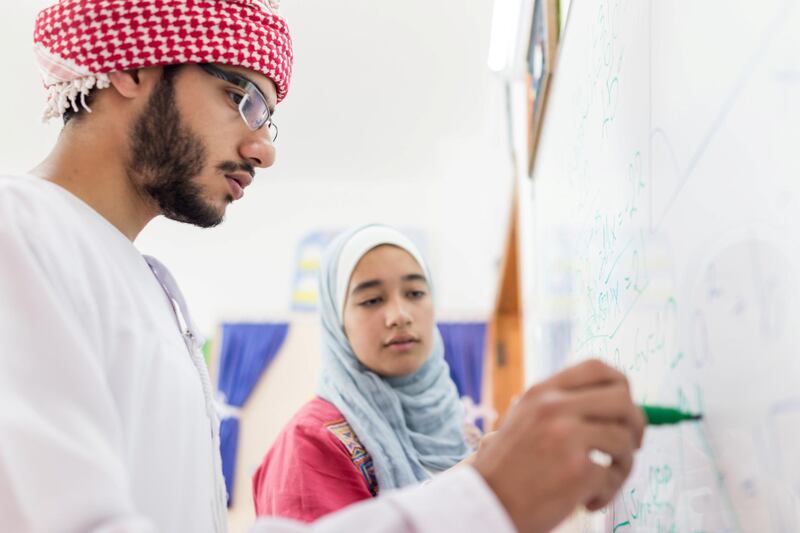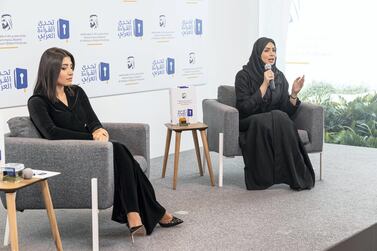A senior government minister has renewed calls for the preservation of Arabic on UN World Arabic Language Day.
Noura Al Kaabi, Minister of Culture and Knowledge Development, said it was crucial for academic institutions to prioritise research and publishing in Arabic.
The UAE is exploring new initiatives to bolster Arabic language use among younger people.
A government report published on Wednesday to coincide with UN World Arabic Language Day suggested most Arabic academics published papers in foreign languages.
The Status Report and the Future of the Arabic Language found just one in 10 academic publications on science were published in the language in the Arab world.
It also revealed more than 60 per cent of Arab researchers publish in foreign languages to try to reach a wider audience.
And four in five researchers said there was a lack of existing material in Arabic to refer to.
“The findings represented today show a need for adapting national tactics and policies relating to the Arabic language alongside technological and communication advancements,” Ms Al Kaabi said.
“The UAE’s leadership is working towards [putting] plans in place for research and initiatives that will improve the usage and awareness of the Arabic language across education and communications.”
The report comes amid widespread alarm that young people in the UAE face growing illiteracy in Arabic.
Formal Arabic, the language used in the media and literature, is universal across the Arabic world but differs greatly from informal vernaculars.
Fluency in formal Arabic has suffered with the widespread use of social and digital media, the report said.
It also noted that children struggled to gain literacy in a language seldom used outside the classroom. It said parents must do more to encourage the study of formal Arabic at home.
The report’s findings echo what teachers and academics have said for years. A 2017 study of Abu Dhabi parents found only one in 10 read to children in Arabic more than three times a week.
Additionally, foreign languages were considered more important for professional advancement.
“We call on all institutions, including local and international universities and organisations to contribute to the ongoing research, which is considered among the UAE’s crucial projects to combat the challenges of globalisation in the 21st century with new methods of preserving and using the Arabic language,” Ms Al Kaabi said.
Government schools are reforming teaching methods to make Arabic lessons more engaging.
Programmes such as the children's reality-TV show, Arab Reading Challenge, have also helped to engage the younger generation.
On Wednesday, the Dubai government launched an online series of Arabic-language lessons.
The interactive videos and animated stories can be used by native and non-native Arabic speakers to learn grammar, reading and writing.
There will also be 1,000 free Arabic classes available to 50 million kindergarten to Grade 12 pupils by end of 2020.
The online classes will be offered through the Madrasa online platform as part of the Mohammed bin Rashid Al Maktoum Global Initiatives.







